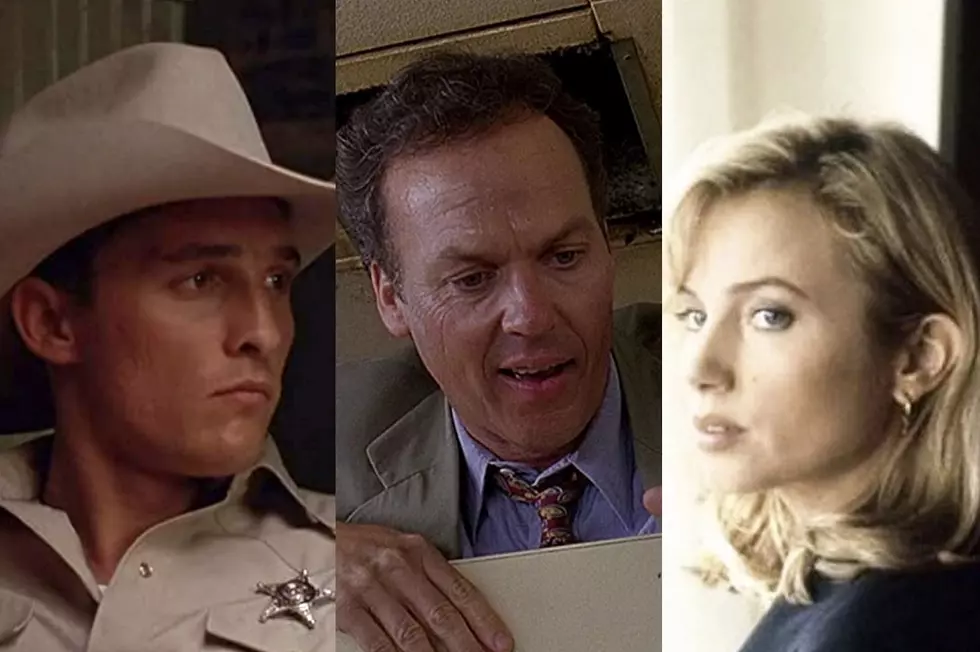
‘Kubo and the Two Strings’ Review: A Mythological Masterpiece From Laika
Anomalisa is a tough stop-motion act to follow, but if anyone is up to the task it’s Laika, the studio behind delightful animated features like ParaNorman and Coraline. Their latest effort blends the company’s usual wit and charm with stunning visuals and an equally remarkable journey, making Kubo and the Two Strings one of the most original films of this tedious summer movie season.
Kubo and the Two Strings follows a boy (Art Parkinson) who spends his days in the town square, spinning tall tales about the legendary quests that resulted in the loss of his warrior father. Using his mother’s enchanted guitar, Kubo brings colorful origami characters to life to battle for the crowd’s amusement. He begins each chapter of the story by fascinating the audience with this poetic refrain:
If you must blink, do it now. Pay careful attention to everything you see, no matter how unusual it may seem. If you look away, even for an instant, then our hero will surely perish.
It’s a lovely and riveting narrative hook that’s also used in the film’s harrowing opening scene; by the time we get to the town square, we’re just as invested in Kubo’s story as the fictional audience onscreen.
At night Kubo tends to his mother, whose memory has become increasingly unreliable in the years since she saved baby Kubo from her nefarious father, the Moon King, and her devilish sisters. When an unfortunate mistake attracts the attention of his familial foes, Kubo is sent on a quest of his own, aided by a wise monkey (Charlize Theron) and an endearingly aloof beetle (Matthew McConaughey).
As our young hero will tell you, that’s not even all of it. Kubo concedes that he was never good at endings, which is why his stories always conclude in the middle of a fight, leaving things unresolved. The climactic moments of his own quest are similarly interrupted, underlining a familiar idiom at the heart of the film: A good story isn’t about the destination, it’s about the journey. Like the locals who watch Kubo perform, we strive for happy endings and desperately grasp for closure, but life never meets those expectations. Whatever Kubo or the film itself might show us during those particularly daunting moments, it can’t possibly be more satisfying than the ideal version of events we’ve imagined.
In a thematic sense, the film that Kubo and the Two Strings most closely resembles is Stories We Tell, Sarah Polley’s brilliantly layered documentary about the life of her mother. Like that movie, Kubo isn’t just preoccupied with the ways we mythologize ourselves; it’s fascinated by the concept of myths and how they get relayed and reinterpreted. It’s essentially a story about telling stories, and how they all begin with our own.
There’s a moment during Kubo’s third act when the Moon King (Ralph Fiennes, doing a very convincing Geoffrey Rush impression) tells Kubo that he has the power to give his story a happy ending — and that’s certainly true to a much more complex degree than Kubo’s evil grandfather realizes. Our young hero spends much of the film on a quest to recover his father’s fabled armor, operating under the belief that once he possesses these near-mythical items, all will be magically resolved. If he can just collect items A, B, and C, everything will be as it should. What he doesn’t factor into the equation is the power of perception, and the way reactions can be far more meaningful than the actions that inspired them.
Beyond its rich thematic subtext (which is, I admit, occasionally a bit heavy-handed), Kubo and the Two Strings borrows familiar motifs to create an entirely new mythology — one that’s worthy of the word “epic.” Like any great hero’s journey, Kubo and the Two Strings grapples with ideas like loss, tragedy, and overcoming obstacles, but its conclusion subverts the standard expectations for what a happy ending should be. Displaying the mastery of visuals and storytelling of a more established veteran, Laika president Travis Knight has gone beyond merely crafting a confident directorial debut; he’s made the studio’s best film to date.
More From ScreenCrush









